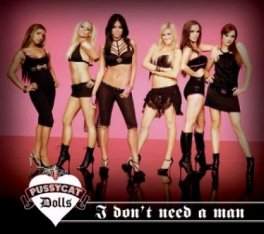Post-feminism can be understood as ‘after feminism’ and is a reaction to the second-wave feminism. The idea behind it is that feminists achieved what they set out to do and that now it is time to take a step back and that some of the feminist ideas are out of date.
One can discuss the fact that feminist ideas are no longer as relevant today because in the modern society we live in women are a lot more equal to men than they were before the first movement. Although there are still certain aspects of society where men are still superior to women, for example the church’s recent vote against female bishops in the UK (http://www.guardian.co.uk/commentisfree/2012/nov/25/women-bishops-church-of-england), and how much men earn compared to women employed in the same field, feminism is easy to cast aside as more irrelevant because women now have the right to vote, to and education and to generally be independent. It is still important to remember that women still have rights to fight for, but because they are now equal to men in what one can call the most important aspects, it is no longer something we constantly strive for.
Because the negative stereotype surrounding feminism, girls generally do not like being seen as feminists. This is because people today mainly think of angry women who hate men, who burn their bras, who strive to be as independent as possible and therefor distancing themselves from any kind of femininity. In the text “Post-feminism and popular culture” by Angela McRobbie, it says that feminism is becoming undone. She says: “If we turn attention to some of the participatory dynamics in leisure and everyday life which see women endorse (or else refuse to condemn) the ironic normalisation of pornography, where they indicate their approval of and desire to be pin up girls…” (McRobbie, p.355). Women today willingly choose to engage in what can be seen as demeaning activities. One can argue that using their sexuality and feminism to empower themselves and make society see them. An example is the girls band Pussycat Dolls who in their music video “I don’t Need a Man” are very provocatively dressed and dancing in suggestive ways, while singing about not needing a man to be happy and that they would rather be free (http://www.youtube.com/watch?v=qBsEF7Qx09o).  By presenting themselves in this way and generally appearing as sexual, one can say that at least they get attention, but then again one can question if it is the right kind of attention? More celebrities doing this is implying to young girls that this is the modern feminist approach, and they are therefore contributing to feminism being undone. As it says in the text mentioned above “we are witness to a hyper-culture of commercial sexuality…” (McRobbie, p. 356). This seen in relation to the Pussycat Dolls and other celebrities such as Beyonce and Lady Gaga (who also use their sexuality and feminism to a certain degree to make their point through their music), is in opposition with older feminist ideas. The original feminists ideas of independently making income is by having a career, preferably a respectable one, while the media business and the people in it are using commercial sexuality to make money, often featuring women at the front.
By presenting themselves in this way and generally appearing as sexual, one can say that at least they get attention, but then again one can question if it is the right kind of attention? More celebrities doing this is implying to young girls that this is the modern feminist approach, and they are therefore contributing to feminism being undone. As it says in the text mentioned above “we are witness to a hyper-culture of commercial sexuality…” (McRobbie, p. 356). This seen in relation to the Pussycat Dolls and other celebrities such as Beyonce and Lady Gaga (who also use their sexuality and feminism to a certain degree to make their point through their music), is in opposition with older feminist ideas. The original feminists ideas of independently making income is by having a career, preferably a respectable one, while the media business and the people in it are using commercial sexuality to make money, often featuring women at the front.
A good blog post with two good examples – the women Bishops vote and the Pussycat Dolls video.
I like how you question the role of celebrities (and therefore the media) in defining gender roles. But remember that a musician being portrayed as an ‘independent woman’ is not the same as that musician being a feminist. (Lady Gaga, for example. has said she is not a feminist) Feminism is a political/academic stance. McRobbie is worried that media portrayals of women like Bridget Jones as independent give a *false* impression that women are free to choose and make lifestyle choices. This is part of the reason for describing it as ‘post’-feminism.
Do Beyonce and Lady Gaga really use *feminism* to make a point through their music? If you distinguish carefully between words like feminism/femininity/female, this will help to make your argument clearer.
If you can, also try to consider the Thornham & Pengpeng text and how that adds to and perhaps complicates McRobbie’s arguments.
It’s good how you try to locate post-feminism historically, as a reaction to previous feminist thought – this is something we will do more of in the next seminar. Congrats on a good blog post.